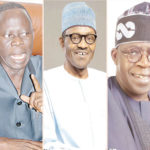JUST as it appeared that the President Muhammadu Buhari administration was relenting in its support for the country’s creative sector, the Vice President, Professor Yemi Osinbajo (SAN), had in far away the United States of America, reiterated government’s commitment to uplifting the sector.
The administration, it will be recalled, had taken a number of initiatives to develop the creative sector, including an inclusive parley with the private sector on how to wean Nigeria’s economy off oil and make the creative industry the economy’s mainstay. It also facilitated the maiden Creative Nigeria Summit with the theme Financing the Film, Television and Music Industries in Lagos, where government promised tax relief for those ready to venture into the creative industry. Last August, the government walked its talk when the Nigerian Investment Promotion Commission included the creative sector among 27 new industries granted tax reliefs.
Piracy was also addressed to an extent with the Inspector General of Police, Ibrahim Idris, establishing Anti-Piracy Units in all police commands and the Federal Capital Territory to fight the most virulent cancer afflicting the creative industry.
Though it had continued to support a number of players in the sector thereafter, things had appeared slow until Osinbajo’s assurance on Tuesday, July 10 in the US where he had led an investment road show to showcase the efforts of the Buhari administration in developing Nigeria’s technology, entertainment and creative sectors, and to deepen collaboration between Nigeria and the US in these areas.
Speaking at the interactive investment forum on Nigeria’s creative sector with US-based entertainment outlets, media and investors held in Waldorf Astoria, Beverly Hills, Los Angeles, Osinbajo said the government was determined to ensure needed regulations were in place to stimulate the growth of Nigeria’s entertainment/creative industries, including the protection of Intellectual Property and investment guarantees.
According to the vice-president, “we understand how dynamic the environment is, both technology and creative arts. But we think that the way to go will be to work with those who are actually in the industry, those like yourselves who are putting in their money, their resources, time, and energy into this, and trying to do our regulations in such a way that we are competitive practically with anyone else in the world.
“So, what we have done so far is that we’ve been looking at what the specific issues are, and there are quite a few. There are those who want to know about what we are doing in terms of Intellectual Property protection, investment guarantee, and all of that. But I think that the most important thing really, is that we have a government, and a lot of those who work in our agencies, who are determined to work through this, day by day, piece by piece to make sure that we get our environment right, and we get the right type of investment environment.”
Osinbajo further said the Buhari administration would continue to make an effort to improve the country’s infrastructure and technology to grow the country’s entertainment/creative sector and the digital economy. He said: “We are also, of course, very interested in many ways, in deepening infrastructure, especially broadband connectivity and all of that, because we think that mobile telephony is going to be one of the big ways, especially for the distribution of film and all of that. And we are convinced that with the size of our population, we must find ways of getting film and content unto mobile phones, and also working out payment systems around that because we think that that is the way this is going to go.
“We know that in the next couple of years, that really is where a lot of development is going to go to, and we are very anxious to get our regulations right, to get all of our laws in place and to ensure that we are able to attract all of you who want to do business with us, especially those of you who are coming from other countries. As for Nigerians, we are, of course, actively engaged with the local industry, and that is one of the reasons why we have the advisory council which takes into account many of our local investors, local artistes and the local entertainment crowd generally.”
Present at the interactive session, the last leg of the Professor Osinbajo’s trip to the US, where he led a public-private sector collaborative investment road show, were eminent players in America’s entertainment circle. They included top Hollywood executive like Mark Viane of Paramount Pictures; Steven O’Dell of Sony Pictures; Kieran Breen, Karen Mbanefo and Bryan Song of 20th Century Fox, Betty Lee of Lions Gate; Craig Dehmel and Shehu Garba from IMAX Entertainment. Others were Monique Esclavissat of Warner Bros; Mary Ann Hughes from Walt Disney, John Fithian of the National Association of Theatre Owners, and Ryan Gibson of BET International. There were also representatives from Fox Network and Universal Studios.
The Nigerian delegation at the meeting, part of the larger Advisory Group on Technology Innovation and Creativity, an arm of the National Industrial Competitiveness Council, comprised Innocent Idibia (Tuface); New York-based Nigerian visual artist, musician, singer/songwriter, Laolu Senbanjo; CEO, Ebony Life TV, Mo Abudu, Chocolate City CEO, Audu Maikori; founder/CEO Terra Kulture, Bolanle Austen-Peters and Sesan Ogunro among others.
Osinbajo had, earlier during the trip held fruitful interactions with major players in America’s Silicon Valley including Google, LinkedIn, Pinterest and US industry chieftains. He had also showcased opportunities for innovation and investment in Nigeria, while also highlighting the growth of Nigerian technology start-ups and young Nigerians taking the lead in innovation and creativity.






